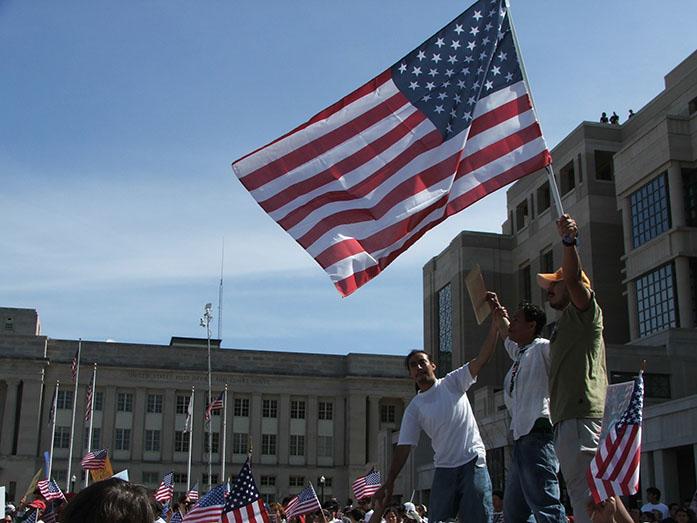As the spectrum of rhetoric related to immigration widens among 2016 Republicans hopefuls, Democrats will focus on other issues.
By Aaron Walker
[email protected]
Frontrunner Donald Trump has equated some undocumented immigrants with rapists and drug smugglers since announcing his presidential bid — which has sparked new interest with other Republican presidential candidates.
Republicans will continue to compile new solutions to border-related issues until the primaries crown a victor, said Francisco Pedraza, an assistant professor of political science at Texas A&M University.
“You’re going to see [Republicans] come up with new kinds of policy positions in sort of a desperate plea to the Republican base saying, ‘Pay attention to me,’” he said.
Once a candidate is selected, the rhetoric will become more centrist and less extreme, Pedraza said. And in the meantime, Democrats will avoid the topic and assume they are a better alternative for Latino voters.
A poll released by the *Des Moines Register* on Aug. 29 showed Donald Trump to be the candidate favored by Iowa Republicans at 23 percent, with a error margin of plus or minus 4.9 percentage points.
And nationally, immigration continues to be the most frequently searched policy question, according to Google Trends.
Wisconsin Gov. Scot Walker, who came in tied for third in the poll, stated last week he would be in favor of constructing border walls with not only Mexico but Canada as well.
That, in the eyes of Will Rogers, the head of the Polk County Republicans, is a reasonable and necessary addition for border security.
“Having open border presents security concerns to us. It’s not an immigration issue, it’s a security issue,” he said.
Pedraza, though, failed to see the practicality or justification for such a wall.
“[Walker] is competing against Trump; he’s desperate,” Pedraza said. “All of these candidates in Republican field are trying their best to get as much media attention as possible.”
Despite immigration being one of the most important and discussed issues to voters in Iowa, Rogers said, the labeling of the topic as a border “crisis” is simply the result of politicians’ rhetoric.
“Crisis would indicate that it would be an emergency-like situation, but thing is we have had unsecured border with millions of people going back and forth across for 60 to 70 years,” Rogers said.
In Iowa, immigrants make up for 4.3 percent of the population, according to a study released by the Iowa Public Policy Project last year. Undocumented immigrants alone, about 2.5 percent of the state’s population, pay an estimated $64 million in state and local taxes.
“The vast majority of people aren’t coming here to get a handout or go on some kind of assistance to find employment or better lives,” Rogers said. “They’re just coming to this country to find work and increase their quality of life.”
As the final months of campaigning before the caucuses approach, specificity will be the deciding factor for many voters in Iowa who place emphasis on the topic, said Judy Davidson, the head of the Scott County Republicans.
“The more specific they can be regarding any future plans is great, and voters will expect that,” she said.



